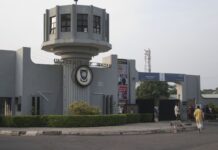The Academic Staff Union of Universities (ASUU) and the World Bank have advised the federal government to use the N4 trillion budgeted for fuel subsidy payment in 2022 to fund education and some other critical sectors of the economy.
Recall that the senate had recently approved N4 trillion for petrol subsidy in 2022.
The figure represented the amount contained in two separate requests by the President Muhammadu Buhari to the national assembly for approval.
He had in a letter to the Legislature dated 10th February, 2022, sought an additional N2.557 trillion to fund subsidy payments from July to December, 2022.
Both ASUU and the World Bank expressed their views in separate interviews at different fora.
Speaking on a television programme on Wednesday, the president of ASUU, Prof Emmanuel Osodeke, said the federal government had neglected tertiary education.
He accused the government of ignoring issues concerning university education while addressing the issue of fuel subsidy with a budget of N4 trillion.
Osodeke asked the government to take N200 billion from the N4 trillion budgeted for subsidy in 2022 to address the grievances of USUU members and end the ongoing strike by the union.
“It is always funny that the government cannot raise N200bn to revamp all Nigeria’s universities annually, to world standards. The same government can raise N4trillion for fuel subsidy.
“You can raise a budget to make N4trillion for subsidy in a year, but you cannot raise N200 billion to fund your education where you don’t have the infrastructure.
“You can spend N228 billion to feed children in primary or secondary schools but you cannot raise this fund for your university; it is an issue of priority. That is the problem.
“If you remove N200 billion from N4 trillion to fund your universities, you still have N3.8 trillion for fuel subsidy,” he said.
For its part, president of the World Bank Group, Mr. David Malpass said the huge amount spent on fuel subsidy could be channeled to other critical sectors.
Malpass spoke yesterday during a media briefing at the World Bank/International Monetary Fund Spring Meetings in Washington DC.
He pointed out that generalised subsidies have significant negative effects on any system.
“One is that they are expensive because they go to everyone and they are often used by people with upper incomes than by people with lower incomes so they are not targeted.
“So, we encourage that when there is need for subsidy, either food or for fuel, that it should be carefully targeted at those most in need of it. And so, we have encouraged Nigeria to rethink its subsidy effort,” he said.
He also warned Nigeria to do away with multiple exchange rate system, which he said “is complicated and is not as effective as it would be if there were a single exchange rate.”
“The most useful thing for developing countries is to have a single exchange rate that is market-based, that is stable over long periods of time as that attracts investment and so that would help.”
The World Bank chief also noted Nigeria’s trade barriers that continue to distort trade and capital flows and urged the federal government to improve on this so as to help the country and its people move forward.






















































